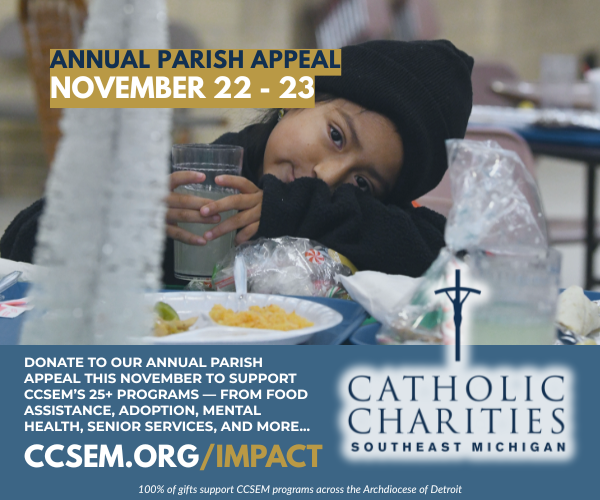VATICAN CITY (CNS) -- Catholic universities are called to contribute to the growth of the intellectual tradition of the church as well as the hearts of their students, forming them into agents of good, Pope Francis told the University of Notre Dame's board of trustees.
"The educational efforts undertaken by Catholic institutions, in fact, are based on a firm belief in the intrinsic harmony between faith and reason," the pope told members of the board and the university's president during a meeting at the Vatican Feb. 1.
Educators and students at Catholic universities should appreciate "the richness of the Catholic intellectual tradition," he said, noting that "this is not a closure, no, it is an opening; there is an intellectual tradition that we must conserve and always grow."
Yet he noted the task of a Catholic university "is not only to develop the mind, the head, but to expand the heart."
"The entire university community is therefore called to accompany people, especially young people, with wisdom and respect, on the paths of life and to help them cultivate an openness to all that is true, good and beautiful," the pope told them. "In this regard, we cannot overlook the essential role of religion in educating people's hearts."
The papal audience took place during the board of trustees' winter meeting in Rome.
Pope Francis urged the board member to ensure that what is taught in the classroom does not stay there but is applied to improve society.
"Catholic education commits us, among other things, to building a better world, teaching mutual coexistence, fraternal solidarity and peace," the pope said. "We cannot remain closed within the walls or boundaries of our institutions, but must strive to go out to the peripheries, to encounter and serve Christ in our neighbor."
After the audience with the pope, Cardinal Kevin J. Farrell, prefect of the Dicastery for Laity, the Family and Life, celebrated Mass with the group at the Altar of the Chair in St. Peter's Basilica.
In his homily, the cardinal said that the "hostility from both within the church and hostility from outside of the church" encountered by the University of Notre Dame "is part of the Christian life."
"A secularized and polarized community as we are, we have to continue to teach the values and the presence of Christ among us," he said. "Through teaching, research, academic culture, the Catholic university bears witness to the truth, shows students ways to seek the ultimate meaning of their existence and the true values of human coexistence."
Speaking to Catholic News Service, Holy Cross Father John I. Jenkins, president of the University of Notre Dame, said the university's mission as a Catholic institution of higher education "is absolutely valuable and particularly critical in our time."
"The call of Notre Dame is to be a university at the highest level, measured by the ordinary ways universities are measured, but to bring with it a Catholic mission," he said. "That's a unifying mission, and it's a mission that gives a sense of purpose and a sense of moral calling in a world that is so often confused about that."
Father Jenkins said that in today's academic and cultural landscape, the university "has a special role to play in the United States, particularly in this polarized, somewhat confusing, somewhat contentious time."
After 19 years as president of the University of Notre Dame, Father Jenkins will step down from his role at the end of the 2023-2024 academic year. Holy Cross Father Robert A. Dowd, who has been chosen to succeed him, told CNS that amidst increasing polarization, Catholic universities are "especially well-suited to form bridge builders" by drawing from Catholic social tradition.
"There are unfortunately some very deep divisions in our society and our world," he said. "I think it's more important than ever that we find ways of grounding everything we do in Catholic social tradition and forming bridge builders."
During the board of trustee's meeting, the University of Notre Dame conferred three honorary degrees at its Rome center Jan. 29, honoring: Barbara Jatta, director of the Vatican Museums; Bishop Brian Farrell, secretary of the Dicastery for Promoting Christian Unity; and Roberto Benigni, an internationally acclaimed Italian actor, director and poet.










